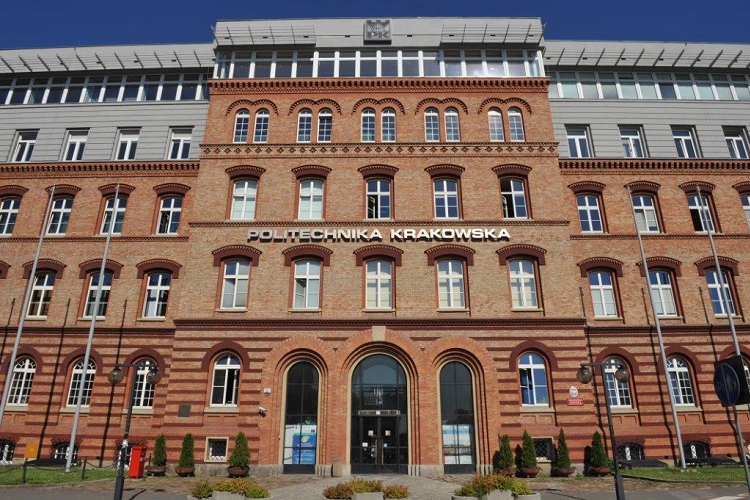 After a long-awaited feeling “Hurrah! I will study in Poland! “A new, not so sublime, but more critical and close to reality feeling comes. The new question, “How should this all be?” It’s not possible to take things their own course. Because irresponsibility in this matter can lead to disastrous consequences.
After a long-awaited feeling “Hurrah! I will study in Poland! “A new, not so sublime, but more critical and close to reality feeling comes. The new question, “How should this all be?” It’s not possible to take things their own course. Because irresponsibility in this matter can lead to disastrous consequences.
Statistical data argues that more than 35 thousand students from Ukraine are currently studying in Poland. With a percentage equivalent of 62% of the total number of foreign students. Like any European country, Poland sees Ukraine as a prosperous and successful country. But is it really all so beautiful and carelessly, like it looks at first glance?
Why our students are dealing with high prices for housing and food, pay for education dozens of thousands, not even zlotys, but the euro. And then they find themselves on low-paid jobs Poles themselves refuse to take. Or worse – to return home with a piece of plastic called “diploma”, which is not recognized by any institution in Ukraine or in Europe. The biggest trouble is that there are a lot colleges that are ready to “print” the diplomas, so you need to take all responsibility for choosing an educational institution. The third negative moment is the failure of Ukrainian to adapt to the new conditions and, as a result, to return home too fast.
For example, having received a law degree in one of the dubious Polish universities, but without Polish citizenship, you will not be able to formally work in any legal institution (courts, customs, prosecutor’s office, department of justice, military prosecutor’s office) either in Ukraine or in Poland. There are also such universities, getting bachelor’s degree from you will not be able to continue studies at the University of Wroclaw. This institution has its own entry and admission rules.
As a result, there is a disappointing prospect of staying in Poland for work for people of the “second category”. And the acquired knowledge and skills are completely unnecessary neither for the European labor market, nor for Ukrainian.
A separate issue is to highlight the realities in Polish private educational institutions. Here are some of them:
- Most specialties have less training hours than similar courses in Ukraine. But in this situation, they are not Poles, but the Ukrainians themselves. They first spend a lot of money, believing in stories that t 99% of recruitment agencies, and then themselves are surprised by their naivety. The fact is that in some Polish universities, training groups are formed exclusively from foreigners, where, accordingly, 90% of Ukrainian students are. Poles, as a rule, in such groups refuse to study.
- In order to open a training group with a particular field of study, it is necessary that the number of applicants exceeds 8-10 persons. If there is no full group, that is, “underdevelopment” on a particular training line, the Polish Ministry of Education cancels the permission to study in this specialty.
- Polish universities can be entered without the results of external testing, which threatens to be among the students with a low grades.
- Note that on recruiting agencies’ sites, in most cases, outdated information is available on the study areas of certain universities over the 2014-2018 academic years. That is, the information about them exist, and in fact those specialties may not be.
In order for the chosen specialty to last for more than 2-3 years, it is necessary for your fellow students to have the desire and opportunity to study on it. The situation may arise that after 1 year of study, some students decide to “pause,” to save money for the same study, for acomodation. Thus, such students threaten the existence of the entire specialty. It may be that, as of September 1, only 7 people will remain in the group (with a minimum of 8), and the university will simply refuse to conduct classes, which the institution has a right. And, as practice shows, there are a lot of examples that a specialty simply disappears after the first or second course.
Private educational institutions are business organizations. Polish law exempts universities from paying taxes on added value (local VAT) for funds paid for tuition fees. But here is not so easy. Even successful private institutions are sometimes forced to take loans for payment, relying on the funds that should come from students payments. But not always the expectations, in practice, can correspond to reality. And institutions, not having enough funding, are forced to admit themselves bankrupt. That is, even having students, having everything necessary for the conduct of the educational process, some universities can leave their students without diplomas. Or, not having withstood competition, the university to transfer to the ownership of other structures. Most agencies keep these data in secret. You can check the status of your chosen educational institution at the official website.
- Most intermediary agencies that have appeared in the market not so long ago may not even have the information about the full time professors and the percentage of the involvement of specialists from the side. The fact is that employed scholars in universities have a stable salary, and from other institutions receive a monetary reward only for a “stage” that allows you to save money. If the university is capable of paying wages to the officially recruited employees, this indicates its financial stability.
- Pay attention to such simple indicators as the number of graduates who have received diplomas for the entire period of running the institution. It is quite useful to ask what percentage of graduates work in the chosen specialty.
- Where the training takes place – there are private educational institutions that, for passing this stage, send their students to Ukraine.
The information about the annual evaluation of higher education institutions conducted by the Ministry of Education and Science of Poland is rather interesting and useful.
Another interesting moment, which “forgot” to inform both intermediary agencies and the representatives of universities themselves:
- For the archiving of documents must be paid from 400 to 1200 zl.
- In universities there are fines for the premature termination of an education contract.
- The fee for re-examinations is from 200 to 600 zl.
- Additional fees for specialization.
- The institution is not financially liable if your field of study does not run any more and you have not been able to submit documents to another institution.
- The institution is not responsible if the training group was not formed for 2-3 academic years and the specialty is closed.
- If it is necessary to return the money for training, it is not worthwhile to expect that it will be done immediately.
- Even after receiving a Pole card, not all training agreements provide for the possibility of continuing education on free of charge basis.
It should also be remembered that all controversial situations are solved just in court, according to the Polish law and the provisions of the agreement on education.
After obtaining a college or university diploma in a Poland, in order to be able to work in Europe in your field, it is obligated to do nostrification, evaluation of your diploma – legalization of a foreign educational document.
Only 30% of Ukrainians agree to go through this procedure, which costs from 500-1000 euros, and the term of execution – from 6 months to 1 year.
There are also force majeures, such as bus stops, unplanned departure of the plane, nervousness and disorganization, cultural and a language barrier, a tight schedule, financial difficulties, or academic debt that can play a crucial role and at any time send you home. That is why it is always worthwhile to correctly evaluate the situation and your possibilities.
Also, our site contains data about Polish universities that have suspended permit to conduct research, institutions with a suspended license and suspended accreditation. Stay tune with our portal, so you do not miss important events and news.


 kudapostupat
kudapostupat














 162498
162498 





















